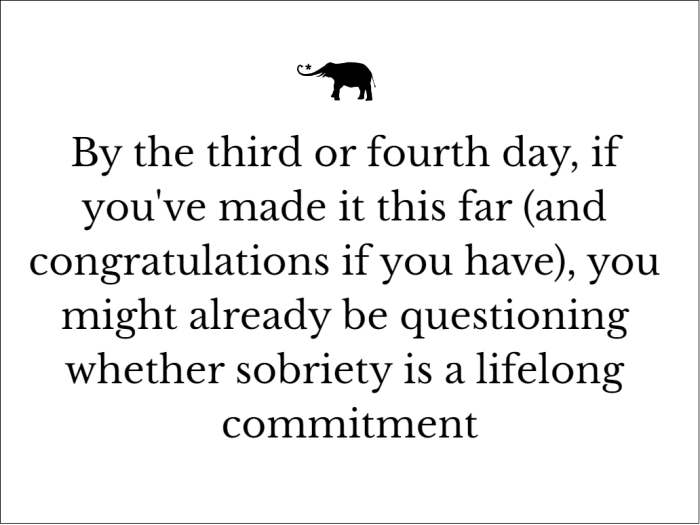In the early days of sobriety, there’s this strange sense of having more time on your hands. It’s what everyone wants, right? More time to enjoy, to savor life. But for some reason, this newfound time feels empty, lonely, and like it’s missing something vital—of course, that something is the drink. But it’s more than that; it’s like there’s a void, a gap in the fabric of your existence. Sometimes, you can pinpoint it as the absence of alcohol, while other times, it’s a peculiar sensation, uncomfortably close to boredom.
You might find yourself fidgety, restless, and, in those initial days (and believe me, I’ve tried to get sober many times before), you might turn to food to fill that void. Even if you’ve had dinner, you’ll reach for snacks or have a slice of toast, anything to quell the emptiness, to be occupied with “something, anything,” just so you don’t have to confront the hollowness.
After a long, exhausting day, the idea of reading or doing something productive might seem like a one-way ticket to dreamland – and who wants to fall asleep when there’s finally a precious hour or two of uninterrupted me-time after putting the kids to bed? Initially, that first day of sobriety, the thought of having this “free time” without alcohol can be somewhat exciting, especially if you’re nursing a hangover. The second day might carry that excitement, at least until around 4 or 5 PM when the alcohol-related thoughts start creeping in.
By the third or fourth day, if you’ve made it this far (and congratulations if you have), you might already be questioning whether sobriety is a lifelong commitment. You may even catch yourself planning a date when you’ll allow yourself to drink again. The longing for booze can become intense; it feels like you’re missing a dear friend, a companion. The evenings start to feel dull and lackluster. That empty, hollow sensation becomes increasingly difficult to sit with, and you might find yourself going to bed earlier and earlier, just to escape it.
Then, instead of waking up with a hangover and a barrage of questions like “When did I go to bed?” or “What did I eat before bed?” you wake up sober. In those first four or five days, you don’t necessarily feel great. You may have expected to experience all those positive attributes that TikTok sobriety advocates talk about, but instead, you’re left wondering, “Is this it?”
You work throughout the day, shuttle the kids around, tackle household chores, and then it’s bedtime as if that’s all there is to it. And that’s when those dark thoughts start creeping in – thoughts about the point of it all, your purpose, and whether life can ever be fun again. It can feel like there’s nothing to look forward to. This stage, this sense of despair, is something I’ve come to expect this time around. I’ve been on this journey multiple times, and I know how the monster can resurface, relentless and unforgiving.











Read 0 comments and reply